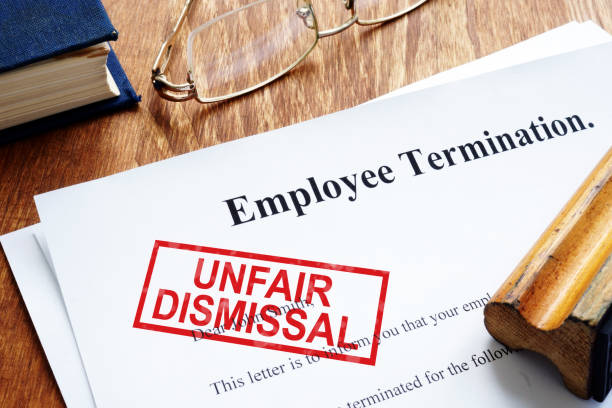Getting dismissed from a job can be one of the most frustrating things an individual can go through. Apart from losing a source of income, it can also negatively affect one’s mental health. As you’d imagine, there are various reasons why someone might get dismissed from their job. For a start, an employee may get dismissed due to a lack of productivity. Also, an individual might get dismissed if he or she violates their employment contract. While all these are most times caused by the employee, an employee’s contract may also get terminated for reasons that are not related to their job performance or conduct.
An unfair dismissal can be a frustrating situation to deal with, and that is why it is essential for every employee and employer alike to know their rights and learn how to protect themselves.
Therefore, in this comprehensive guide, we’ll cover everything you need to know about unfair dismissal. So, let’s get on with it.
What Does it Mean to be Unfairly Dismissed?
The notion that job security exists in the labor market is, to put it mildly, as fake as a unicorn – it simply doesn’t exist. Anyone can get dismissed from their job at any time, irrespective of the position they hold or their level of experience. Several legitimate reasons can bring about a termination of an employment contract, for instance, poor performance, misconduct, bridge of employment contract, etc.
However, it should also be noted that not all forms of dismissal are considered unfair. For instance, an employee who becomes pregnant or he/she decides to take a quick leave because a family member got sick. If such an employee gets sacked, it could be termed unfair dismissal.
Unfair dismissal is a legal term that describes a situation whereby an employee gets sacked or unjustly dismissed from their job. When an employee gets dismissed, it often breaches their employment rights, and if they play their cards right, they can challenge such illegitimate dismissal in a court of law.
However, before we proceed further, we must differentiate unfair dismissal from other forms of termination, such as resignation or mutual agreement to terminate a contract. If an employee voluntarily resigns or agrees to terminate their contract, under no circumstances will that be considered an unfair dismissal. Similarly, if an employee’s employment is contractual, and the contract is winding down, terminating such contract (when it has expired) will not be considered unfair dismissal.
Common Causes of Unfair Dismissal
Now that you know what unfair dismissal is and various instances where a dismissal will be termed unfair, the next thing is to familiarize yourself with some of the common causes of Unfair Dismissal.
- Discrimination (based on age, gender, race, religion, disability): An employer dismissing an employee because of his choice of religion, sex, etc., is a very common occurrence, and despite the number of legislative law that has been enacted to combat issues like this, it is sad that issues like this still linger on.
- Whistleblowing: When an employee leaks an illegal activity in the company to outsiders or the press, they could get dismissed. However, it is important to note that dismissal of this kind will only be termed unfair if, after an external investigation, the allegations are correct. Otherwise, the employer could only argue that they dismiss the employee because they leaked the company’s private information.
- Performance-related issues: An employee may also be unfairly dismissed if the company feels like they haven’t been as productive as they would like him to be. Of course, this claim could be false.
- Personal characteristics: Another common cause of dismissal is personality clashes. That is when an employee and an employer have different opinions regarding Politics or a particular trending issue.
What to do if You’re a Victim of Unfair Dismissal
If you feel like you have been unfairly dismissed, there are several practical steps you can take to protect your interests. We shall briefly explain various steps you can take.
-
Gather relevant evidence
If you feel like you have been dismissed unfairly and you want to seek redress, the first step to take would be to gather all the necessary evidence. Getting evidence is key to solving legal issues because the court of law deals with facts, not hearsay. Evidences to gather would include the employment contract, the dismissal letter, etc.
-
Make a formal complaint or appeal
After you might have gathered all the relevant evidence, the next thing would be to make a formal complaint to the appropriate quarters. At this point, you must contact your attorney to help you navigate this process.
-
Seek legal advice
After you have made a formal complaint to the appropriate quarters, the next step would be to hire a qualified lawyer to give you legal advice. The advantage of doing this is to make the redress process easy and less complicated.
-
Negotiate a settlement
The end goal of seeking redress in the court after an unfair dismissal is to get settled somehow. However, you must stay calm and professional in these steps to increase your chances of a favorable outcome.
Lastly, try to reach out to support networks, such as unions or employment agencies, as they can provide emotional and practical support during this difficult time.
Legal Protection Against Unfair Dismissal
Employment laws protect employees against unfair dismissal in many countries, but the specifics vary. In British Columbia, for example, the Employment Standards Act (ESA) sets out the rules for employment standards, including termination of employment. According to the Employment Standards Act (ESA), an employer must have just cause for dismissing an employee, and if they don’t, the employee may be entitled to compensation. If an employee has been employed for three or more months, the employer must provide written notice of termination, pay wages in lieu of notice, or a combination of both. However, the amount of notice or pay in lieu of notice is based on the length of service of the employee.
Wrapping Up
Our experienced attorneys at Saanichton Law Group understand the ins and outs of employment law, and can use our legal knowledge to your advantage. No one ever anticipates finding themselves in a situation of unfair dismissal. Still, it can happen to anyone. So you must know what your rights and responsibilities are. We understand how complex and distressing this experience can be, but with the right help, you can obtain the justice you deserve.
If you’ve become a victim of unfair dismissal or have questions regarding your rights as an employee, please contact us at 2505440727 today to book an appointment.




